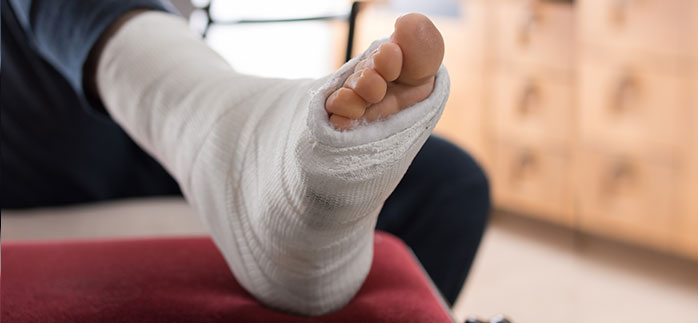
Bone health is so important to our ability to be mobile, active, and healthy our entire life. But many people don’t think about bone health until they experience pain or injury, well after the early stages of osteoporosis have set in. In fact, you may have heard osteoporosis referred to as the “silent disease” because there are often no symptoms until it progresses.
Bone health is correlated with bone density. A reduction in bone density is called osteoporosis. The average person maximizes their bone density near age 30, at which point we begin to lose more bone mass than we gain over time. The rate at which you lose bone density varies based on a variety of factors.
Poor bone health impacts more women than men, and it’s been forecasted that 50 percent of women over the age of 50 will break a bone due to osteoporosis, while 1 in 4 men over the age of 50 will do the same. Regardless of gender, poor bone health is a pervasive health issue that can be prevented and addressed.
Starting at an early age, good bone health can be preserved with a healthy diet that includes plenty of vegetables, protein, and food rich in calcium, vitamin D (which helps your body absorb calcium), and vitamin K. You can also support your bone health by maintaining a healthy, consistent weight and incorporating weight-bearing exercises and strength training into your exercise routine.
Conversely, poor diet, lack of exercise, and other factors can lead to osteoporosis, and eventually increased risk of broken bones, loss of height, and back pain due to spine compression or fractures.
Evaluating Bone Health
In addition to maintaining healthy diet and exercise habits, be on the lookout for clues that your bone health may be declining, and osteoporosis taking hold. If you have back pain, loss of height of at least an inch and a half, or have experienced one or more fractures not caused by a major trauma (also known as low-impact fractures), your bone health could be at risk, and it’s time to see a specialist.
A bone health expert can use a bone scan called DXA to diagnose osteoporosis and recommend treatment to prevent further damage. DXA scans are highly recommended bi-annually for anyone with risk factors, as well as women over age 65 and men over age 70.
It’s important to be diagnosed and treated for osteoporosis to minimize the risk of future fractures. People who break a bone due to osteoporosis are 86% more likely to have another fracture in the next year, but some medications may help prevent future fractures.
Several Advanced Orthopedic & Sports Medicine physicians specialize in bone health and preventing or managing osteoporosis, and we have a full-service Bone Health Clinic at our Southlands, Aurora location. Our physicians provide specialized osteoporosis management programs to provide each patient with diagnostic evaluation, treatment, and prevention recommendations to maximize bone health and keep people independent and active.
Make an appointment at our Bone Health Clinic today.
Common Arm & Elbow Injuries, Disorders, Syndromes & Treatments

Eager to get out and Be Active this summer? Between spring showers and the lingering impacts of a full year of quarantine life, many people

Questions you should be asking (and the answers from an expert!) When do adult bones start to weaken and become susceptible to osteoporosis? Who is

DENVER – Oct 23, 2019 – Advanced Orthopedic & Sports Medicine Specialists marked its first anniversary of service to the Colorado community for its specialized
For More Information Call (303) 344-9090
We are committed to ensuring that our website is accessible to individuals with disabilities. If you need assistance using our website or assistance with a document on the website, we can help you. Please contact us by emailing info@advancedortho.org for any questions or concerns.